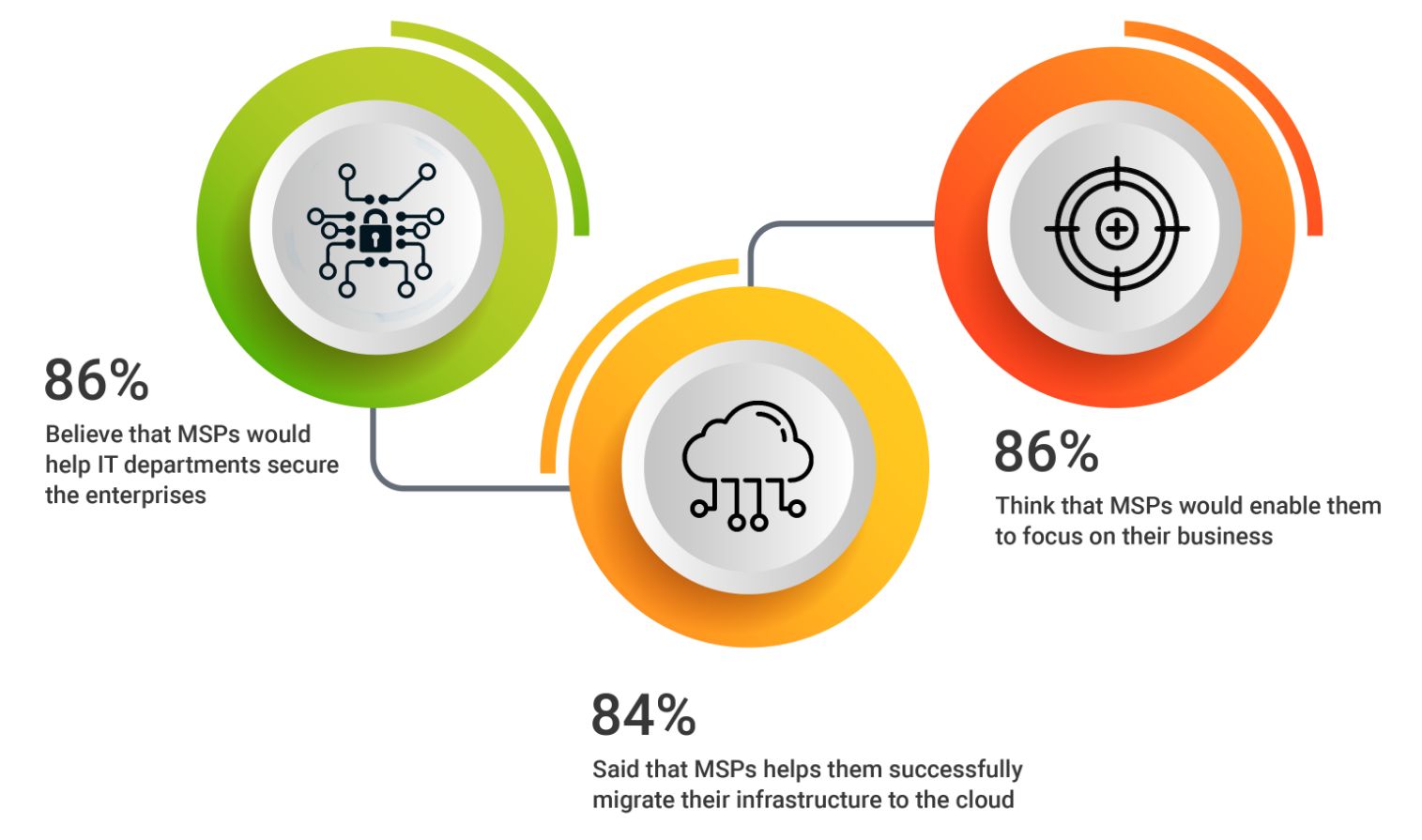The ongoing pandemic has dramatically changed how organizations execute their business plans. This pandemic has forced organizations to face many challenges, implement new initiatives, and follow different paths to stay ahead in the market. They have now realized that they must upgrade with the changing landscape or be left behind continuously soon.
Looking back, many organizations have slowly begun to adopt cloud computing services to accelerate their business process. But after COVID-19 hit the globe in early 2020, there have been rapid changes to business operations and procedures, causing these plans and adaptions to increase rapidly.
Like in many IT sectors, the COVID-19 pandemic has also impacted the MSP provider sector. The year 2020 can be remembered as transformative for Managed Service Providers. While Managed Service Companies performed significantly well, they quickly adapted to the pandemic as many other businesses did for survival. But to be fair enough, MSPs have shown rapid growth compared to other industry sectors.
Let us understand what exactly MSPs are
Adopting a cloud strategy requires changing the dynamic of your company’s work culture and IT approach. Sometimes, it may seem complicated, with little knowledge about migrating the entire infrastructure into the cloud and handling it later. That’s where MSPs come to your rescue.
MSPs are IT-managed service companies that remotely manage a customer’s IT infrastructure and end-user system on a cloud platform daily. Unlike on-demand service providers, MSPs are responsible for hosting websites and managing their customers’ servers. They ensure that their customers will entirely focus on improving their services and increasing their productivity and efficiency without worrying much about downtime and interruptions.

As per the report published by IT Glue Global MSP Benchmark Survey, the most significant challenges Managed IT service providers faced in the pre-COVID era were:
- Lack of adequate time to complete work (54%)
- Inability to find good technical employees (53%)
- Changing technologies (32%)
- Lack of information sharing (27%)
But once the pandemic hit, priorities entirely changed, and cloud MSP companies started reporting different sets of challenges, such as:
- Cybersecurity threats
- Customer churn
- Price pressure, etc.
Concern for cybersecurity saw the most remarkable change. Reducing security risks is the common challenge most managed support services face. In addition, some other aspect MSPs need to focus on is to enable remote working at scale for most of their workforce.
Change in staffing strategies
The pandemic has opened up a whole new sourcing channel. It has amplified already existing direct sourcing models. Flexible talent helps organizations get the skills they need to complete their work on time. Hence, they have turned towards managed service programs to manage their contingent workforce.
MSPs are adopting new staffing strategies and are now learning more about their client’s businesses to help them make sourcing decisions based on the best way to get work done. They help an organization in numerical ways, like hiring temporary staff, independent contractors, freelance employees, and many more. They are taking complete responsibility for the day-to-day management of the program. MSPs have built a pool of talent advisors, using which they also work on resource planning to optimize deployment.
What MSPs can do to stay ahead in crisis:
As discussed earlier, the COVID-19 pandemic forced the entire enterprise sector into a new work culture. WFH has become the new norm these days. Many SMBs and large enterprises are now adopting new infrastructure and more advanced technologies, enabling them to have a better and more secure environment while working from home. We have observed that as many organizations are moving to fully cloud or hybrid infrastructure, the adoption of cloud-based collaboration, cyber-security, and IT-managed services is on the rise.
This provided a way for MSPs to prove their value in the cloud computing market. Since MSPs must enable new infrastructure for their customers in a record time due to the COVID-19 crisis, businesses realize their real potential like managed services offerings never before. Thus, MSPs converted this crisis into an opportunity for their business growth.
Final words: COVID-19 outbreak changed entirely the way the business
Final words: COVID-19 outbreak changed entirely the way the business functions now. Now every enterprise, including aws managed services companies, is adopting different work strategies to maximize their profit and deliver a better service to their clients. They knew they had to face even more challenges in the coming days and needed innovative strategies to tackle their competitors and stay ahead in the race..




